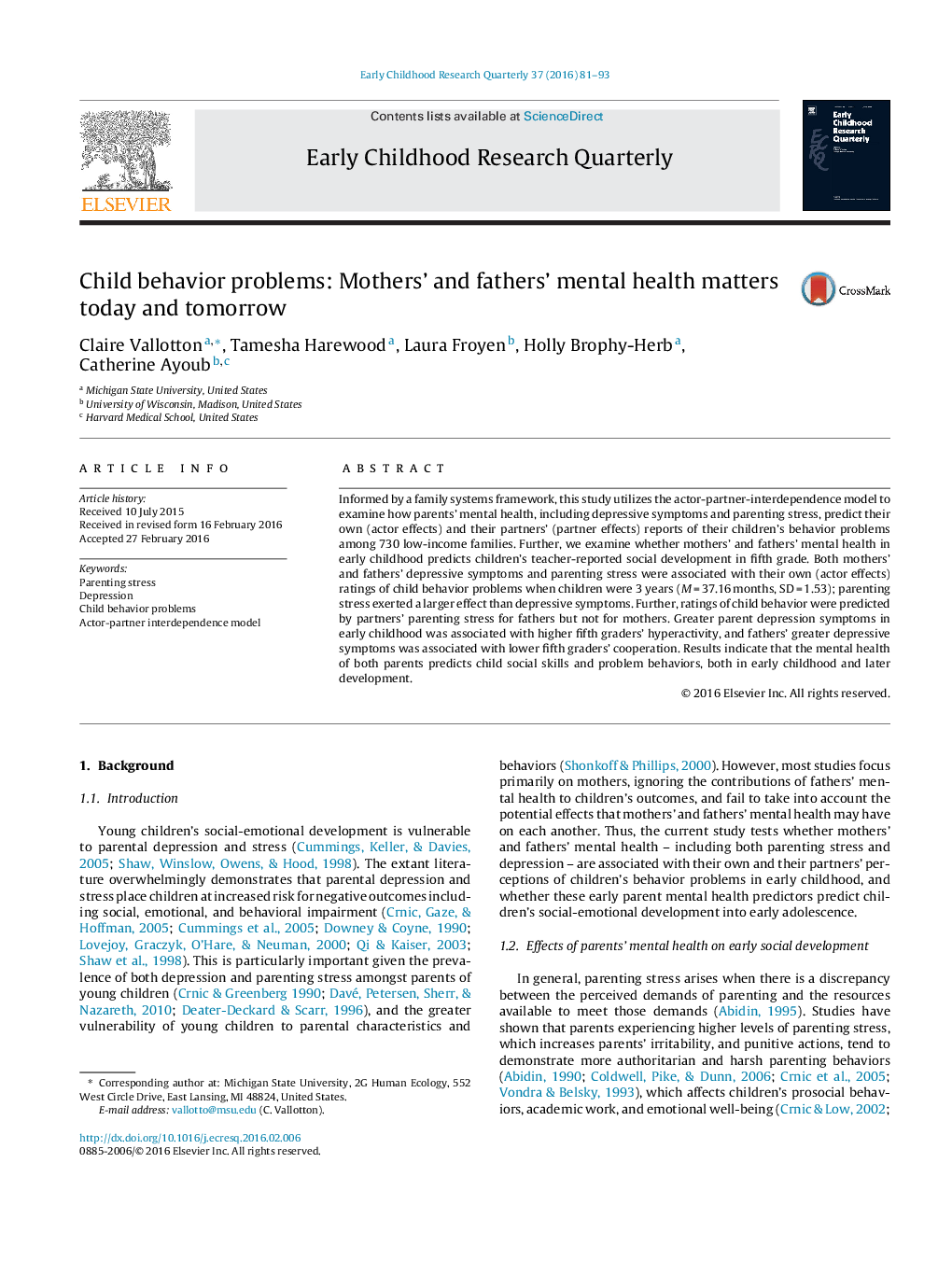| کد مقاله | کد نشریه | سال انتشار | مقاله انگلیسی | نسخه تمام متن |
|---|---|---|---|---|
| 353636 | 618935 | 2016 | 13 صفحه PDF | دانلود رایگان |
• We modeled moms and dads views of their child’s behavior using a dyadic approach.
• We test if both parents mental health at 3 year old predicts adolescent behavior.
• Moms and dads own stress and depression predict their own views of their children.
• Moms parenting stress predicts dads views of their child, but not vice versa.
• Moms and dads early depression predicts their adolescents later social skills.
Informed by a family systems framework, this study utilizes the actor-partner-interdependence model to examine how parents’ mental health, including depressive symptoms and parenting stress, predict their own (actor effects) and their partners’ (partner effects) reports of their children’s behavior problems among 730 low-income families. Further, we examine whether mothers’ and fathers’ mental health in early childhood predicts children’s teacher-reported social development in fifth grade. Both mothers’ and fathers’ depressive symptoms and parenting stress were associated with their own (actor effects) ratings of child behavior problems when children were 3 years (M = 37.16 months, SD = 1.53); parenting stress exerted a larger effect than depressive symptoms. Further, ratings of child behavior were predicted by partners’ parenting stress for fathers but not for mothers. Greater parent depression symptoms in early childhood was associated with higher fifth graders’ hyperactivity, and fathers’ greater depressive symptoms was associated with lower fifth graders’ cooperation. Results indicate that the mental health of both parents predicts child social skills and problem behaviors, both in early childhood and later development.
Journal: Early Childhood Research Quarterly - Volume 37, 4th Quarter 2016, Pages 81–93
